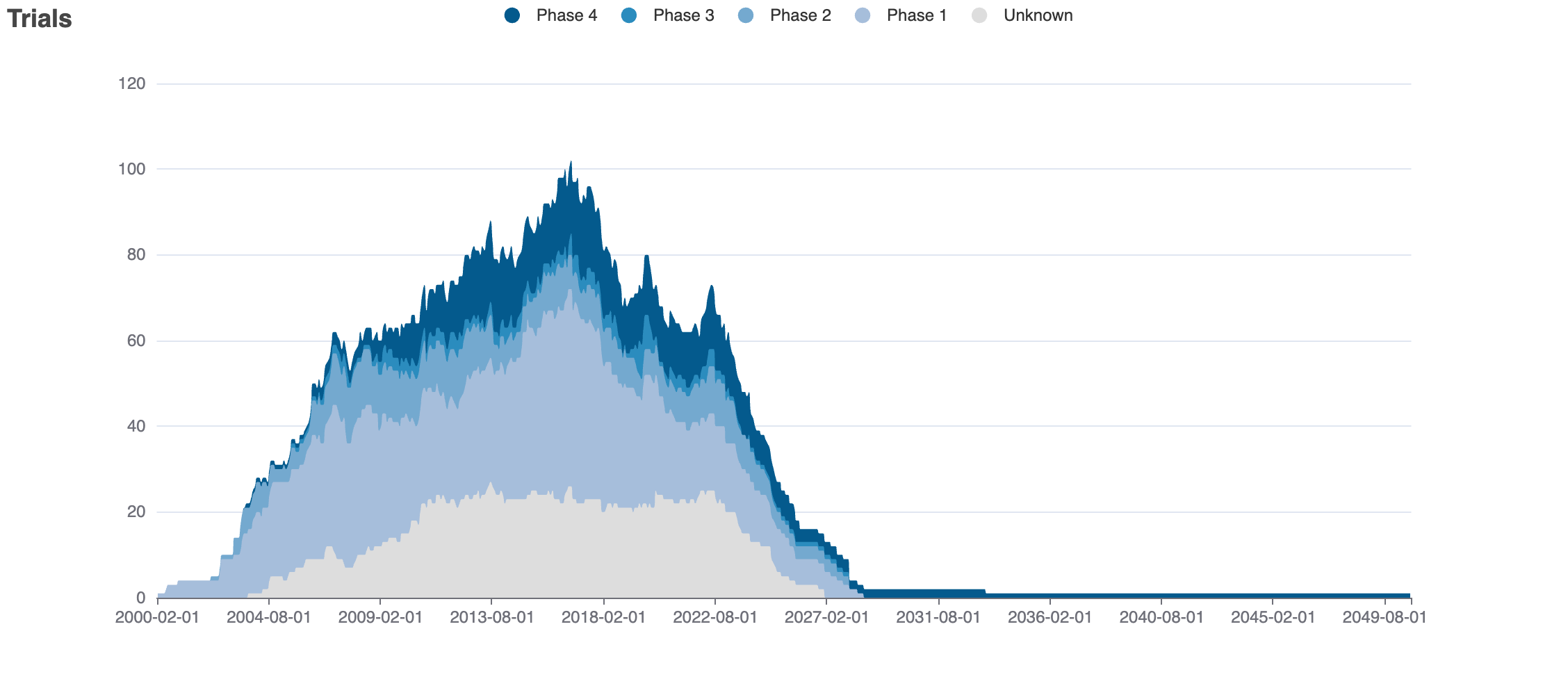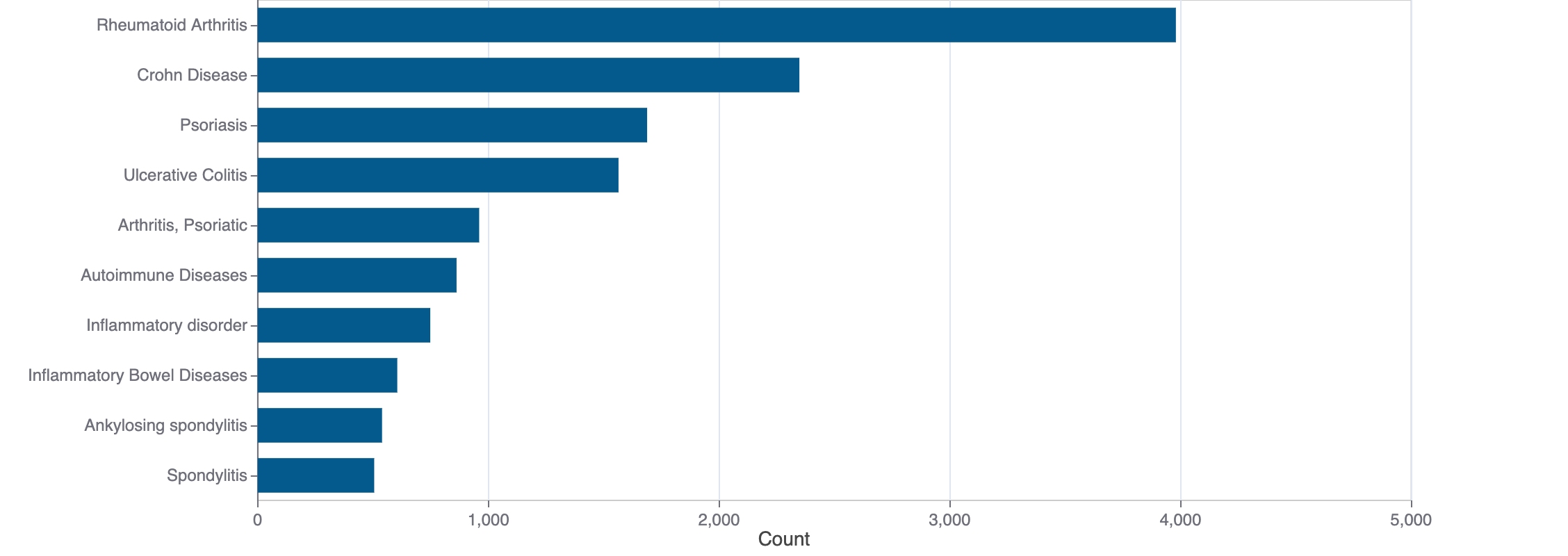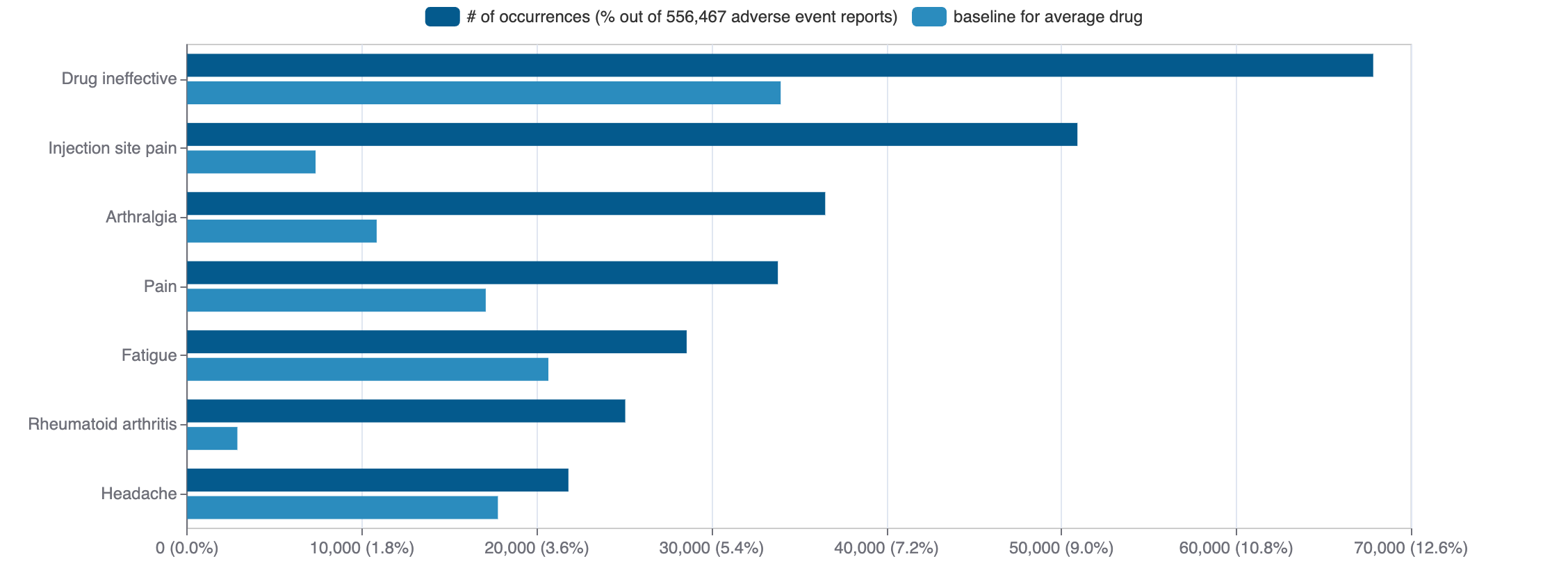Lenabasum
Lenabasum is a small molecule pharmaceutical. It is currently being investigated in clinical studies. It is known to target cannabinoid receptor 2 and cannabinoid receptor 1.
Download report
Favorite
Commercial
Therapeutic Areas
No data
Trade Name
FDA
EMA
No data
Drug Products
FDA
EMA
New Drug Application (NDA)
New Drug Application (NDA)
Abbreviated New Drug Application (ANDA)
Abbreviated New Drug Application (ANDA)
No data
Labels
FDA
EMA
No data
Indications
FDA
EMA
No data
Agency Specific
FDA
EMA
No data
Patent Expiration
No data
ATC Codes
No data
HCPCS
No data
Clinical
Clinical Trials
7 clinical trials
View more details

Mock data
Subscribe for the real data
Subscribe for the real data
Indications Phases 4
No data
Indications Phases 3
Indication | MeSH | Ontology | ICD-10 | Ph 1 | Ph 2 | Ph 3 | Ph 4 | Other | Total |
|---|---|---|---|---|---|---|---|---|---|
| Dermatomyositis | D003882 | EFO_0000398 | M33 | — | 1 | 1 | — | — | 2 |
| Diffuse scleroderma | D045743 | EFO_0000404 | — | 1 | 1 | — | — | 2 |
Indications Phases 2
Indication | MeSH | Ontology | ICD-10 | Ph 1 | Ph 2 | Ph 3 | Ph 4 | Other | Total |
|---|---|---|---|---|---|---|---|---|---|
| Cystic fibrosis | D003550 | EFO_0000390 | E84 | — | 2 | — | — | — | 2 |
| Systemic lupus erythematosus | D008180 | EFO_0002690 | M32 | — | 1 | — | — | — | 1 |
Indications Phases 1
No data
Indications Without Phase
No data
Epidemiology
Epidemiological information for investigational and approved indications
View more details
Drug
General
| Drug common name | LENABASUM |
| INN | lenabasum |
| Description | Ajulemic acid (1',1'-Dimethylheptyl-delta-8-tetrahydrocannabinol-11-oic acid) (DMH-D8-THC-11-OIC) (AB-III-56, HU-239, IP-751, CPL 7075, CT-3, JBT-101, Anabasum, Resunab, Lenabasum) is a synthetic cannabinoid that shows anti-fibrotic and anti-inflammatory effects in pre-clinical studies without causing a subjective "high". Although its design was inspired by a metabolite of delta-9-THC known as delta-9-THC-11-oic acid, ajulemic acid is an analog of the delta-8-THC metabolite delta-8-THC-11-oic acid. It is being developed for the treatment of inflammatory and fibrotic conditions such as systemic sclerosis, dermatomyositis and cystic fibrosis. It does not share the anti-emetic effects of some other cannabinoids, but may be useful for treating chronic inflammatory conditions where inflammation fails to resolve. Side effects include dry mouth, tiredness, and dizziness. The mechanism of action is through activation of the CB2 receptor leading to production of specialized proresolving eicosanoids such as lipoxin A4 and Prostaglandin J2. Studies in animals at doses up to 40 mg/kg show minimal psychoactivity of ajulemic acid, compared to that produced by tetrahydrocannabinol. A composition of ajulemic acid named Lenabasum (formerly Anabasum, Resunab) is being developed by Corbus Pharmaceuticals (formerly JB Therapeutics) for the treatment of orphan chronic life-threatening inflammatory diseases.
|
| Classification | Small molecule |
| Drug class | cannabinol derivatives |
| Image (chem structure or protein) | |
| Structure (InChI/SMILES or Protein Sequence) | CCCCCCC(C)(C)c1cc(O)c2c(c1)OC(C)(C)[C@@H]1CC=C(C(=O)O)C[C@@H]21 |
Identifiers
| PDB | — |
| CAS-ID | 137945-48-3 |
| RxCUI | — |
| ChEMBL ID | CHEMBL456341 |
| ChEBI ID | — |
| PubChem CID | 3083542 |
| DrugBank | DB12193 |
| UNII ID | OGN7X90BT8 (ChemIDplus, GSRS) |
Target
Variants
Clinical Variant
No data
Financial
No data
Trends
PubMed Central
Top Terms for Disease or Syndrome:

Mock data
Subscribe for the real data
Subscribe for the real data
Additional graphs summarizing 116 documents
View more details
Safety
Black-box Warning
No Black-box warning
Adverse Events
Top Adverse Reactions

Mock data
Subscribe for the real data
Subscribe for the real data
1,298 adverse events reported
View more details
Premium feature
Learn more about premium features at pharmakb.com
Learn more
